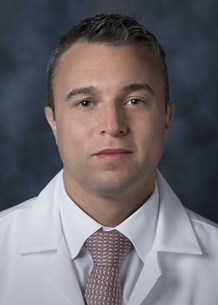Meeting
2019 Gastrointestinal Cancers Symposium

The Angeles Clinic and Research Institute, Los Angeles, CA
Samuel Jacob Klempner , Russell Madison , Jeffrey S. Ross , Vincent A. Miller , Siraj Mahamed Ali , Alexa Betzig Schrock , Jeeyun Lee , Seung Tae Kim , Joseph Chao
Background: Therapies directed at receptor tyrosine kinases (RTKs) in GEA have met with limited success. The small molecule FGFR2 inhibitor AZD4547 failed in a phase II biomarker-selected trial, though activity has been seen with FGFR2-directed strategies, including monoclonal antibodies. Despite observed activity, very little is known about the genomic landscape of FGFR2-altered GEA. Using a large genomic database, we sought to examine the classes of FGFR2 alterations and frequency of co-occurring alterations in GEA. Methods: 6,667 tissue specimens from unique patients with advanced GEA were assayed using hybrid capture-based comprehensive genomic profiling (CGP). Tumor mutational burden (TMB) was determined on up to 1.1 Mbp of sequenced DNA and microsatellite instability (MSI) was determined on 95 or 114 loci. Descriptive statistics were used to compare among subgroups. Results: We identified a total of 269 (4.0%) FGFR2-altered cases consisting of FGFR2 amplified (amp; 209, 78% of FGFR2-altered), FGFR2 mutated (mut; 40, 15%) and FGFR2 rearranged (re, 37, 14%). There was a female predominance in FGFR2-altered cases (M:F = 1.6:1) vs FGFR wild-type (WT) (2.8:1). Cases with FGFR2amp and FGFR2re were exclusively MS-stable. The most common fusion partner was TACC2 (22%). FGFR2amp GEA had higher rates of TP53 mutation versus either FGFR2re of FGFR2mut cases (p = 4.4E-6). Co-occurring alterations in the other GEA RTK targets including ERBB2 (10%), EGFR (8%) and MET (3%) were observed in all types of FGFR2-altered GEA. Co-occurring downstream alterations in MYC (17%), KRAS (10%) and PIK3CA (5.6%) were observed frequently in each class of FGFR2-altered GEA. The median TMB for FGFR2-altered GEA was 3.6 mut/mb, which was not significantly different from a median of 4.3 mut/mb seen in FGFR2 WT samples (p = 0.53). Conclusions:FGFR2-altered GEA is a heterogenous subgroup with approximately 20% of FGFR2-altered samples harboring concurrent RTK alterations. Putative co-occurring modifiers of FGFR2 directed therapy including oncogenic MYC, KRAS, PIK3CA alterations were also frequent, suggesting that pre-treatment CGP and combination approaches may be needed to optimize patient selection.
Disclaimer
This material on this page is ©2024 American Society of Clinical Oncology, all rights reserved. Licensing available upon request. For more information, please contact licensing@asco.org
2019 Gastrointestinal Cancers Symposium
Poster Session
Poster Session A: Cancers of the Esophagus and Stomach
Cancers of the Esophagus and Stomach
Translational Research
J Clin Oncol 37, 2019 (suppl 4; abstr 72)
10.1200/JCO.2019.37.4_suppl.72
72
H2
Abstract Disclosures
2023 ASCO Annual Meeting
First Author: Guomin Lin
2024 ASCO Genitourinary Cancers Symposium
First Author: Antonio Cigliola
2021 Gastrointestinal Cancers Symposium
First Author: Anthony Wood
2023 ASCO Gastrointestinal Cancers Symposium
First Author: Brendon Fusco